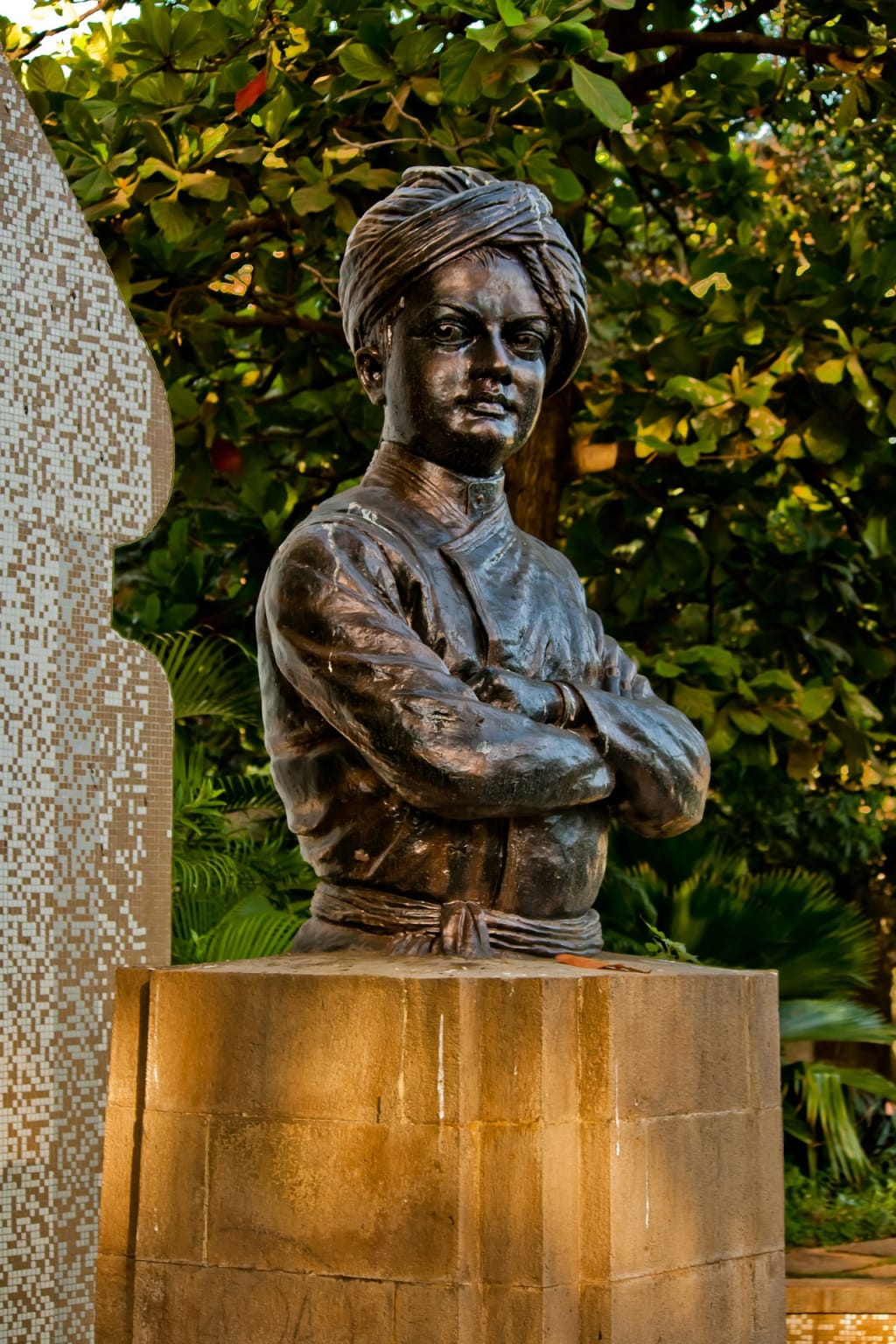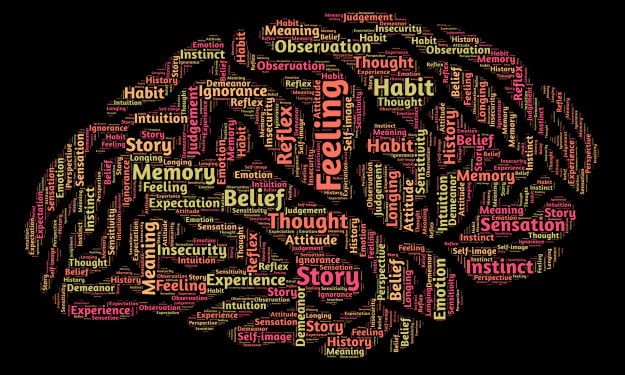SWAMI VIVEKANANDA BIOGRAPHY
SWAMI VIVEKANANDA

SWAMI VIVEKANANDA BIOGRAPHY
The one person whom follows the world and will be followed forever.
Lot of great personalities have taken inspiration from him like Subhas Chandra Bose ,Lal Bahadur Shastri ,Prime Minister Narendra Modi ,Mahatma Gandhi a well known scientist Tesla and the list goes on.
He was a key figure in the introduction of Indian philosophies of Vedanta and Yoga to the Western world.
The person who spread the power of Ved & Upnishad knowledge across the world.
Who waved the flag of Hinduism in the whole world , he is SWAMI VIVEKANAND.
Hey everyone, welcome to EagleEye.
We are back once again with the second episode of biography series.
Today we are going to see the biography of Swami Vivekananda, who founded the Ramakrishna Math and the Ramakrishna Mission.
Best known for his speech which began with the words,
"Sisters and brothers of America..."
"It fills my heart with joy unspeakable to rise in response to the warm and cordial welcome which you have given us."
He introduced Hinduism at the Parliament of the World's Religions in Chicago in 1893.
At these words, Vivekananda received a two-minute standing ovation from the crowd of seven thousand.
Highlights of his speech say, he believes in oneness of god.
He told people to know the god, leave the luxury and everyone should come forward & uplift the humanity.
He was very kind hearted.
One of his incident is, whenever he would see a monk or a Sanyasi, [who gives up materialistic living , lives simple life & goes on a path to find the god] Swamiji used to give all the things he had.
His parents saw this & locked him in a room.
And when he would see a monk through the window then he used to throw things towards them.
Vivekananda was born on 12th January, 1863 few moments before sunrise .
His birth name was Narendra Nath Dutt.
He got many visions. He visualized Bhagwan Gautam Buddha infront of him talking,
"Come here, your home is not your place. Your place is here."
One of his vision in sleep was that, one man is living luxurious life, is married , well settled.
and another vision was another person left everything & started to walk on the path of god.
The process of becoming a Sanyasi stared right from his childhood.
He was very brillient and favourite to teachers,
intelligent and very straight forward.
He actively participeted in every aspects of school.
His literacy work:
Jnana Yoga, Bhakti Yoga, Karma Yoga, Raja Yoga are famous.
He was not very religious at start.
In 1879, when he graduated, he entered Precidency college of Calcutta
where Shubash Chandra Bose , C.V.Raman also had studied.
Yet he didn't know about Ramakrishna Paramhansa that time,
who, in later life became the spiritual master of Swamiji.
When he entered the college, he started following Brahmo Samaj.
The Brahmo Samaj was formed by Raja Ram Mohan Roy to reform
Hindu society of social & religious evil and eradicate practices like Sati & Caste system, denounce polytheism and idol worship.
This influenced him a lot.
Once after delivering the speech, Swamiji fell on the floor and cried a lot.
He then thought and thought.
He thought that, here are people who are spending thousands of money on this program and there are people in my country, who are not getting food to eat, clothes to wear, they are dying of hunger.
People here are spending money on their dogs and pets and, there my people don't even have enough money for their own children.
Being emotional is not a weakness, its a strength.
Many powerful people were emotional like A. Lincoln, M. Gandhi.
The last words of Ramakrishna Paramhansa to Swamiji were,
"I've given you all the knowledge I had.
Now it is your responsibility to spread that knowledge to whole world."
Vivekananda propogated that, the essence of Hinduism was best expressed in Adi Shankara's Advaita Vedanta philosophy.
He believed that the Absolute is both: immanent and transcendent.
His Neo-Advaita reconciles Dvaita or dualism and Advaita or non-dualism.
He summarized the Vedanta as follows, giving it a modern and Universalistic interpretation.
Each soul is potentially divine.
The goal is to manifest this Divinity within by controlling nature: external and internal.
Do this either by work, or worship, or mental discipline, or philosophy by one, or more, or all of these—and be free.
This is the whole of religion.
Doctrines or dogmas or rituals or books or temples or forms are but secondary details.
Nationalism was a prominent theme in Vivekananda's thoughts.
He believed that a country's future depends on its people, and his teachings focused on human development.
He wanted to set in motion a machinery which will bring noblest ideas to the doorstep of even the poorest and the meanest.
Vivekananda linked morality with control of the mind, seeing truth, purity and unselfishness as traits which strengthened it.
He advised his followers to be holy, unselfish and to have faith.
He supported Brahmacharya, believing it, the source of his physical and mental stamina and eloquence.
He emphasized that, success was an outcome of, focused thought and actions In his lectures on Raja Yoga he said, He stayed in the West for almost two years.
He travelled England, France, Germany, Italy to spread his teachings.
People were electrified and many became his disciples.
He also founded Vedanta Society in New York.
Basically he taught the whole west his philosophy and people were lost in him.
Dr. Babasaheb Ambedkar said, The first Governor General of independent India, C. Rajagopalachari said, According to Subhas Chandra Bose, a proponent of armed struggle for Indian independence, For Gandhi, Vivekananda's influence increased Gandhi's love for his country a thousand fold.
Vivekananda influenced India's independence movement.
His writings inspired freedom fighters such as Netaji Subhas Chandra Bose, Aurbindo Ghosh, Bal Gangadhar Tilak and Bagha Jatin.
Many years after Vivekananda's death, Rabindranath Tagore said, Jamsetji Tata was inspired by
Vivekananda to establish the Indian Institute of Science, one of India's best-known research universities Abroad.
In September 2010, India's Finance Ministry highlighted the relevance of Vivekananda's teachings and values to the modern economic environment.
The former president of India, Shri Pranab Mukherjee, approved in principle, the Swami Vivekananda Values Education Project at a cost of ₹1 billion rupees (US$14 million),
with objectives including:
involving youth with competitions, essays, discussions and study circles
and publishing Vivekananda's works in a number of languages.
In 1899, he again travelled the West and India.
But his health kept on declining and he knew that, his final time is coming.
He already announced that, he will not see his 40th birthday.
He also felt that, his mission on Earth was over.
And in his last days, he was completely lost in gods through meditation.
Finally, while he was in his samadhi, he got salvation in 1902 at the age of 39.
All wept like a child, but there was a sudden breeze, assuring everyone that, Angels never die.
Take care guys.
Jai Hind.





Comments
There are no comments for this story
Be the first to respond and start the conversation.